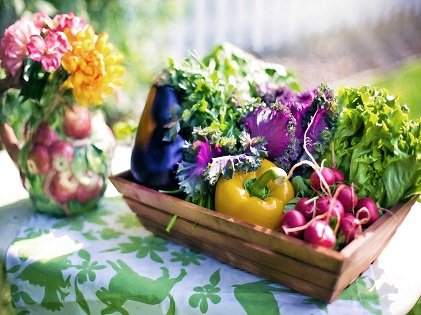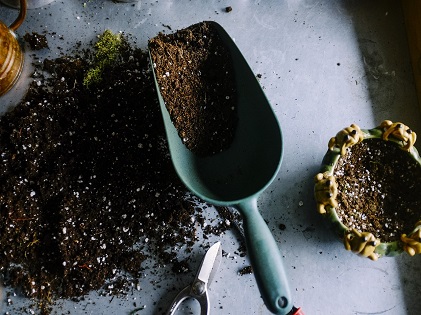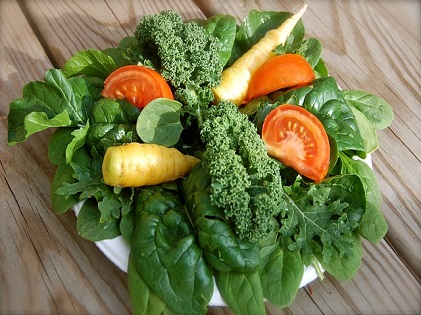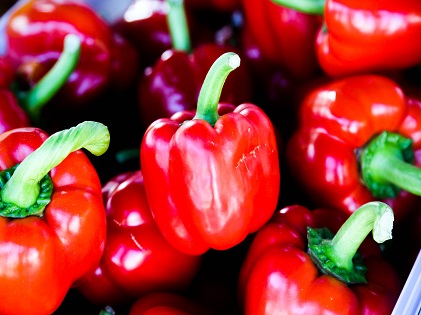Four Organic Gardening Tips for Beginners
 As a beginner in vegetable gardening, you have a lot of questions in your mind, such as what vegetables are ideal to plant, the type of soil, or the condition they will likely survive. Organic gardening is practical these days; it delivers nutritious foods in your table and makes you save a lot of money. This article will talk about vegetables appropriate for your garden and proper ways to start your garden.
As a beginner in vegetable gardening, you have a lot of questions in your mind, such as what vegetables are ideal to plant, the type of soil, or the condition they will likely survive. Organic gardening is practical these days; it delivers nutritious foods in your table and makes you save a lot of money. This article will talk about vegetables appropriate for your garden and proper ways to start your garden.
Choose Your Veggies
Carrots
This vegetable is rich in vitamins C, D, and E. It is ready to harvest after 70 to 80 days. Make sure to use a garden fork when you remove them from the soil.
Green Beans
Because they are easy to cultivate, green beans become the most popular vegetables. In just one packet of seeds, 4 to 5 seedlings will likely grow. However, this crop will stop producing or growing during summer but will start again when it ends.
Lettuce
This is a natural vegetable to grow. Your soil must have a generous amount of compost for the plants to grow healthy and maintain moisture in roots. The soil pH must be neutral.
Spinach
With enough compost on the soil, this vegetable will surely grow. Water is in a fair amount to maintain moisture and remove weeds occasionally. They are great for sandwiches and soups.
Tomatoes
You can purchase full-grown tomatoes in stores and replant it in your garden. Use a tomato cage or stakes to support your tomato while growing. You can also use twine or fabric strips.
Cucumbers
It is used mostly in salads, and they taste good, especially if you pick them fresh from your garden. Harvest them before they become too big.
Radishes
Since they grow quickly, they are perfect for beginners and even for children (if you want to include your kids in starting an organic garden, which is a great way to bond). Mixing compost in the soil is advisable before you put the seeds.
Bell Pepper
Overwatering or over-fertilizing this vegetable is a bad idea. With proper care, they can quickly grow.
Summer Squash
Zucchini is the widely known summer squash in the US. They are high-yielding plants like the radishes, so be careful when you plant them.
Basil
This is an herb that you can include in your vegetable garden or even in your windowsill garden. They give off a fantastic fragrance when you pick their leaves.
Vegetable seeds are relatively cheap, so you can find the ones that will fit your budget. Make sure the seeds you choose will survive the condition in your area.
Plant Them in Your Garden
Now that you have chosen your seeds, it is time to plant them. As a beginner, this might be an overwhelming task for you, so make sure to read more about gardening so you can prepare yourself.
When you purchase your seeds, there are instructions available on how you should sow, maintain, and harvest each crop. Make sure to follow them carefully. But if it doesn’t have any given instructions, then you have to research each vegetable you purchased. Online is the best place to visit. There are countless articles and blogs which could be a great help to you.
The Right Type of Soil
 It is essential that you identify the type of soil you have in your garden and then make sure it is appropriate for the survival of your plants. Soil makes a difference in how your plants will grow.
It is essential that you identify the type of soil you have in your garden and then make sure it is appropriate for the survival of your plants. Soil makes a difference in how your plants will grow.
The first step you should do is to mix your soil with organic materials or compost pit so it has the nutrients your plants will need. You can as sprinkle a small amount of fertilizer, but organic is ideal for healthy soil. Stick to organic feeds as this will prevent your vegetable from consuming chemicals from commercial fertilizers.
Eliminate the Pests
The most challenging part for gardeners is eliminating animals that eat your plants before you do. This is unavoidable, so you must observe every plant if pests infest them. Also, make sure to harvest the fruits at the right time so you can have a taste of your hard labor before the pests do.
These are just essential tips in starting your organic garden. It may seem a lot of work, especially for a newbie, but as time goes by, you will find out that gardening can be a relaxing hobby. Not to mention its bonus of yielding healthy crops for you to enjoy.


